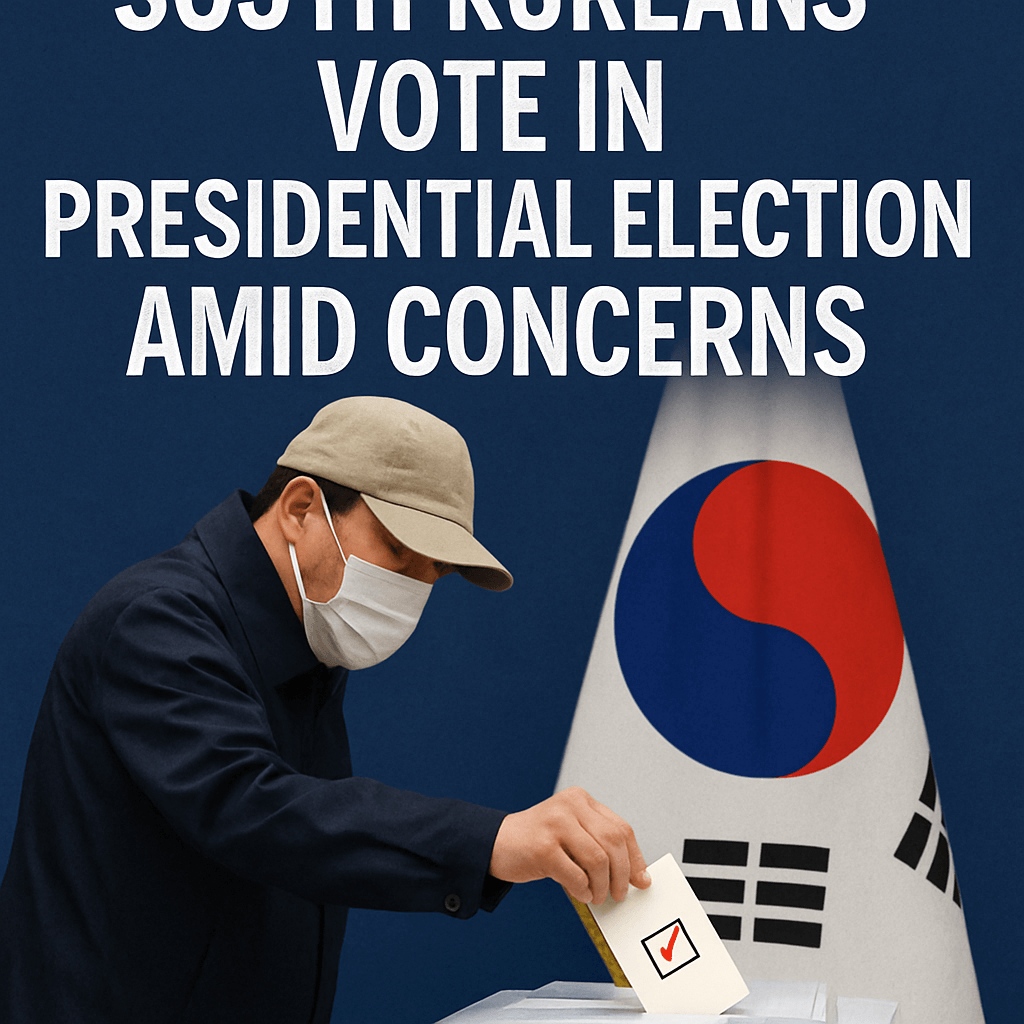South Koreans Vote in Presidential Election Amid Concerns

On Tuesday, South Koreans flocked to the polls to elect a new president, exactly six months after former leader Yoon Suk Yeol’s controversial declaration of martial law plunged the nation into political chaos. Following months of instability and a series of acting leaders, the electorate is eager for a return to governance.
The Candidates: A Split in Public Opinion
Current major polls are heavily favoring liberal candidate Lee Jae-myung, with the latest Gallup survey indicating that 49% of respondents consider him the best candidate for the presidency. In contrast, conservative candidate Kim Moon-soo from the People Power Party (PPP) has garnered only 35% support according to the same poll.
Lee, who has previously faced an assassination attempt, has campaigned vigorously, emphasizing his readiness to lead a nation hurtling towards critical issues including:
- Global trade vicissitudes threatening the export-driven economy.
- Some of the world’s lowest birth rates, posing long-term demographic challenges.
- An emboldened North Korea, which has been rapidly expanding its military arsenal. Recent satellite images have suggested the potential for North Korea to conduct more ballistic missile tests, exacerbating fears among South Koreans.
A Referendum on the Previous Administration
Experts suggest that the fallout from Yoon’s martial law declaration remains the most pressing concern for voters. Voter Park Dong-shin, 79, stated, “I am voting to make a new country once again.” He condemned Yoon’s actions, likening them to oppressive tactics of dictatorship historically present in South Korea.
The declaration led to armed soldiers being deployed to parliament, a move that not only shocked many citizens but also triggered Yoon’s impeachment—the second consecutive South Korean president to be ousted from office following President Park Geun-hye in 2017. This political upheaval has transformed the current election into a referendum on Yoon’s controversial administration, where many moderates have turned away from conservatism.
Voter Engagement and Election Day Atmosphere
The turnout has been robust, reflecting the public’s determination to engage with the political process. As of midday, 62.1% of eligible voters had cast their ballots, an increase from the previous election’s 61.3% at the same time. This indicates a heightened interest in the presidential race, which experts believe marks a critical turning point for South Korea.
Candidates are prohibited from campaigning on election day; however, Lee pointed out via social media that the vote signifies “the strength of the Korean people.” Political science professor Kang Joo-hyun noted, “The election is largely viewed as a referendum on the previous administration.”
Additionally, the introduction of more advanced voting technologies and online platforms for information dissemination has greatly enhanced voter engagement and transparency this election season.
Security Measures and Election Integrity
As citizens exercise their right to vote, police presence is notably heightened, with thousands of officers deployed to ensure a smooth election process. Authorities issued the highest level of alert to prevent any potential unrest, particularly as South Koreans have voiced concerns regarding security matters stemming from both domestic and external influences.
Furthermore, exit polls are anticipated to be published at 8:00 PM local time, immediately following the closure of polling stations, with reliable predictions expected based on past accuracy.
The Immediate Challenges for the Next Leader
Whomever emerges victorious will not only face the daunting task of pulling the country out of political turmoil but will also have to address significant issues affecting day-to-day life in South Korea. Critical challenges include:
- Revitalizing an economy heavily reliant on exports amid changing global trade conditions.
- Tackling one of the lowest birth rates in the world, understood to be central to future labor force and economic stability.
- Formulating a strong response to North Korea’s military provocations while maintaining regional security partnerships.
As South Korea enters a new chapter in its political landscape, the pressing need for leadership that transcends partisan divides has never been more essential. Cab driver Choi Sung-wook, 68, expressed his hope that the next president will foster an atmosphere of peace and unity rather than ideological conflict, remarking, “I thought Yoon would do well, but he betrayed the people.”
In a country where the presidency entails significant authority and a direct impact on both domestic and foreign policy, the outcome of this election could shape South Korea’s trajectory for years to come.
Source: fortune